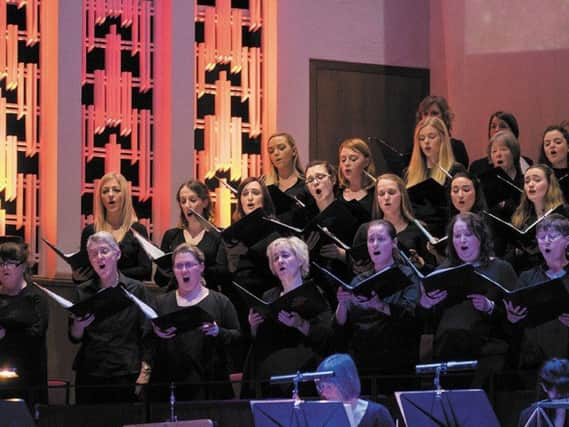Classical Chat: Choral masterpieces worth singing about


Large-scale pieces for singers and instrumentalists working together have created some of the most thrilling moments in classical music and some of its best-loved pieces.
The oldest works in classical music were written for voices and unaccompanied singing was the norm for hundreds of years during medieval times.
Advertisement
Hide AdAdvertisement
Hide AdThe masterpieces of what is referred to as early music will be considered in another Classical Chat in the future.
Once instruments were given equal status alongside voices composers quickly began to combine the two, and it wasn’t long at all before grandiose and beautiful works emerged for increasingly-large numbers of performers.
Reflecting the roots of classical singing being in church, many of these works were sacred religious pieces, but this by no means accounts for all the music created for choirs and ensembles.
Here are some of the jewels of this repertoire:
Handel’s Messiah: The most famous oratorio even written, this is laden with well-known tunes including the famous Hallelujah chorus and has too many highlights to mention here. Handel creates memorable and stunning melodies seemingly at will, reflecting everything from anger and despair to deep spiritual joy.
Advertisement
Hide AdAdvertisement
Hide AdHaydn’s The Creation: A grand setting of the story of the book of Genesis, the famous episodes in this work include the amazing moment when the orchestra blazes with glory as it describes the appearance of light and the joyful choruses which perfectly balance simple themes with intricate structures.
Bach’s St Matthew Passion: Written for Easter in the Lutheran church of the 1700s, this is a more austere work than the two above but shows perfectly the depth and seriousness of Bach’s religious faith. Musically it’s absolutely stunning and much more effectively dramatic and subtle than the operas of the era.
Verdi’s Requiem: One of the most famous opera composers ever, the Italian maestro’s setting of the funeral mass in memory of a nationalist writer is not exactly restrained. It is best known for his vivid depiction of the Day of Judgement, a terrifying outburst of choral singing, crashing drums and twisting, hyperactive strings which has been used in many TV programmes and films.
Janacek’s Glagolitic Mass: A huge hymn to the greatness of Czech culture, this spiritual masterpiece contains some thrilling music (although sopranos navigating his fiendishly high-pitched writing may disagree). It is full of bold rhythms and has a Credo section where you can practically smell the incense.